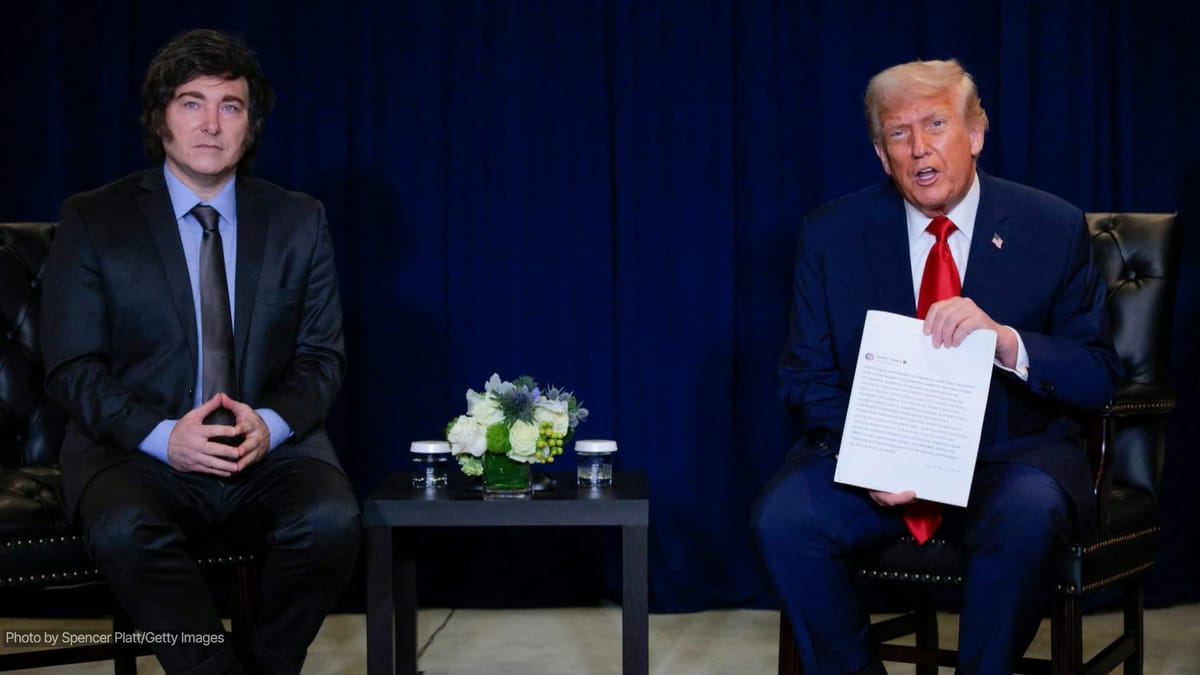Buy Out, Or Bail Out? Argentina and US Swap Cash
Some U.S. farmers and lawmakers argue the deal benefits Argentina’s soybean trade with China, potentially undercutting American exports. But the broader picture reveals a calculated move to...

Why the U.S.–Argentina Currency Swap Is a Bold Win for American Sovereignty
In a world increasingly shaped by economic alliances and geopolitical maneuvering, the recent $20 billion currency swap between the United States and Argentina is more than just a financial transaction—it’s a strategic masterstroke.
🔄 The Deal at a Glance
The U.S. Treasury finalized a $20 billion currency swap with Argentina’s central bank, including a direct purchase of Argentine pesos. While critics label it a bailout, Treasury Secretary Scott Bessent insists it’s a stabilizing move—not a rescue. The deal comes amid Argentina’s financial crisis and just ahead of its midterm elections, giving President Javier Milei a diplomatic and economic boost.
🌎 Weakening China’s Grip in Latin America
Argentina had previously deepened ties with China through an $18 billion swap line and its participation in the Belt and Road Initiative (BRI). This new U.S. deal signals a pivot away from Beijing:
- Swap Leverage: U.S. officials reportedly made support conditional on Argentina winding down its Chinese swap line.
- Diplomatic Realignment: Milei’s administration has distanced itself from BRICS and BRI, aligning more closely with Washington.
- Regional Ripple Effect: Argentina’s shift may inspire other Latin American nations to reconsider their dependence on Chinese financing.
🧪 Rare Earths: The Backbone of Sovereignty
Securing access to rare earth minerals isn’t just about economics—it’s about national security, technological leadership, and industrial independence.
Why Rare Earths Matter
- Defense Systems: Rare earths are essential for fighter jets, missile guidance systems, sonar, and satellite communications.
- Clean Energy: They power wind turbines, electric vehicle motors, and advanced battery technologies.
- Consumer Tech: Smartphones, laptops, and medical imaging devices rely on rare earth elements for performance and miniaturization.
Argentina’s Role
- Argentina holds vast reserves of lithium and other rare earths, especially in the “Lithium Triangle” it shares with Bolivia and Chile.
- While not explicitly part of the swap deal, the U.S. now has financial leverage and diplomatic goodwill to negotiate future resource agreements.
- This positions America to diversify its supply chains and reduce dependence on China, which currently dominates over 90% of global rare earth processing.
Strategic Benefits for the U.S.
- Supply Chain Security: Reduces vulnerability to geopolitical disruptions or trade restrictions from China.
- Economic Resilience: Supports domestic manufacturing and innovation in high-tech sectors.
- Global Leadership: Reinforces U.S. influence in setting standards and securing ethical sourcing of critical minerals.
💬 Addressing the Critics
Some U.S. farmers and lawmakers argue the deal benefits Argentina’s soybean trade with China, potentially undercutting American exports. But the broader picture reveals a strategic and calculated move to:
- Reassert U.S. influence in Latin America
- Counter China’s economic expansion
- Secure critical resources for the future
🧭 The Bigger Picture
This isn’t just about Argentina—it’s about reshaping global alliances. By using economic tools instead of military might, the U.S. is reinforcing its leadership in the Western Hemisphere and laying the groundwork for a more secure, sovereign future.
📜 Sources & Receipts
- MSN: U.S. Buys Argentine Pesos, Finalizes $20 Billion Currency Swap
- IMF: Argentina Loan Package Approval
- Reuters: Argentina Pivots Away from China in U.S. Currency Deal
- Brookings: Rare Earths and American Security
- CSIS: China’s Belt and Road Initiative in Latin America
- Mining.com: Argentina Lithium Projects Attract U.S. Investors





